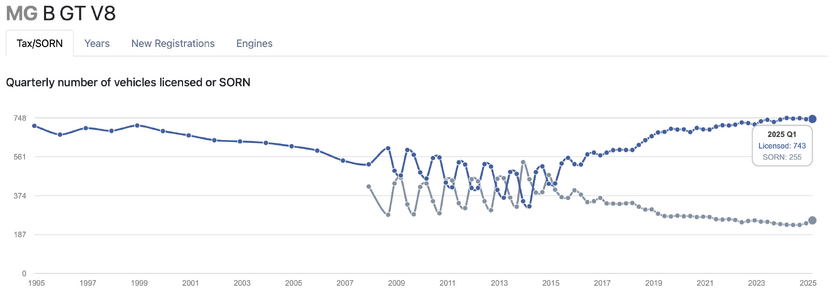Wow so you have no interest in something that may be more environmentally friendly than any EV and require rare earths? I am very surprised.

That's a complete misrepresentation of my interest. I am completely interested in engineering solutions that lower the impact of the machine (of whatever type) on the environment. But I am also massively skeptical of anything that claims to be more environmentally friendly than an electric drive train - especially if it involves combustion. Some questions to back up my skeptical stance.
1) If the rotary engine and the as-yet-to-be-manufactured-low-carbon-fuel are so clean, why is the vehicle being touted as a PHEV? Isn't the PHEV bit just expensive redundant hardware if the rotary engine is "110% cleaner". Also - PHEVs have a battery and require "rare earths" (which are not rare).
2) The article says the new fuel will emit up to 90% less carbon than a conventional engine. And then will save an additional 20% at the tail pipe. 20% of the remaining 10% is 92%, not 110%. You can't save 110% of the carbon dioxide produced by combustion. Thats what is referred to a "marketing maths" in my line of work.
3) If the carbon capture process is so effective - run it on atmospheric carbon, at industrial scale, to reduce the impact of other high CO2 emitting processes, and run the car on CO2-free clean energy (using its PHEV side) from zero carbon sources (wind, solar, hydro, tidal) etc.
4) CO2 free fuel is not in-and-of-itself a good thing. We know Hydrogen _can_ be a CO2 free fuel (for combustion, or fuel cell). But it comes at a cost of efficiency and hence price. It's very expensive and inefficient. What is the energy cost to manufacture the microalgae fuel, and what is its actual cost? If it's more than 12year old single malt scotch per litre, I will stick with free electricity from the roof, and buy the scotch to drink.
Carbon capture in the exhaust isn't smoke and mirrors, it's real using a mobile form of the same processes used in industry
I agree - carbon capture is a real thing. But it's hard enough to do at even medium scale in a fixed environment, never mind in a small form factor mobile format in a car.
Don't misunderstand my skepticism for denial or dismissal. I would love to be proved wrong. But here my "if it's too good to be true, it's probably BS" sensor is alarming.






